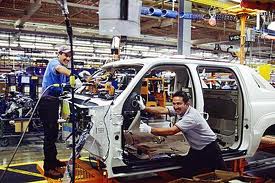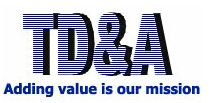 ISO/TS 16949 was established by The International Automotive Task Force (IATF).
ISO/TS 16949 was established by The International Automotive Task Force (IATF).
IATF includes Automotive Manufacturers such as BMW, Daimler, Chryster, Fiat, Ford, General Motor, PSA Peugeot-Citroen…and national commercial associations: AIAG (USA), VDA(Germany), SMMT(England), ENFIA(Italy), FIEV(France) and JZapanese Automobile Manufacturers Association (JAMA).
Released in March 2002, it was to replace for previous version, ISO/TS 16949:1999. ISO/TS 16949:2002 defines the requirements of Quality Management system in designing and improving production, assemble and relevant services.
ISO/TS 16949:2002 is a technical regulation compliant with Quality Management System of Global Automobile Industry such as QS 9000 (USA), VDA6.1 (Germany), EAQF (France), AVSQ (Italy)...Its purpose is to eliminate several certifications as to meet customers’ satisfaction.
This is not a compulsory Standard for every automobile manufacturer all over the world.
Key changes – ISO/TS 16949:2002
- Requirement for quality objective definition and striving targets. (5.4.1)
- Enhancing the requirement for management review. (5.6)
- Defining personnel’s competence. (6.2.2)
- Personnel’s authority and responsibility. (6.2.2.4)
- Design and improvement requirements. (7.3)
- Enhancing requirement to the suppliers. (7.4)
- Enhancing evaluation of customer satisfaction. (8.2.1)
- More requirements for internal audits. (8.2.2)

Major differences between QS 9000 and ISO/TS 16949
- Being a fundamental transition from ISO 9001:1994 to ISO 9001:2000.
- Not paying much attention to documentation.
- ISO/TS 16949:2002 only takes essential interest in 07 areas of documentation procedure requirement.
- Aiming to achieve customer satisfaction at the highest level.
- Being interested in carrying out corrective actions upon ineffective or invalid processes.
- Managing the system by proving the business’s strategic need in order to establish objectives and quality policy.
Benefits from applying ISO/TS 16949:2002
- The process effectiveness and product quality will be improved.
- Delivery time will be ensured.
- The supplier will be requested to improve quality.
- Requirements of automobile manufacturers, which are IATF’s members, will be satisfied.
- Certification of Third Party will be minimized because once the organization is certified as being conformable with ISO/TS 16949:2002, at the same time it is also verified as being conformable with ISO 9001:2000.
- The organization will be able to transit from QS 9000 throughout periodical monitoring audits that are brought about by certifying organization qualified by IATF.
Benefits from ISO/TS 16949:2002 certification
- Marketing competitive advantage.
- More opportunities in export; overcoming technical obstacles; penetrating export markets.
- Minimizing inspection and testing cost.
- Assuring that customer satisfaction shall be satisfied; enhancing purchasers’ reliability.
- Decreasing permanent control of customers.
- Improving internal operations; increasing quality and working effectiveness; reducing regulatory pressure on quality and certificates that support product circulation in the market.
- Being able to participate in contract, sales when having QS 9000:1998 certificate.
- Having a competitive advantage to other organizations which have not got the certification.
- Improving the business or organization image.
